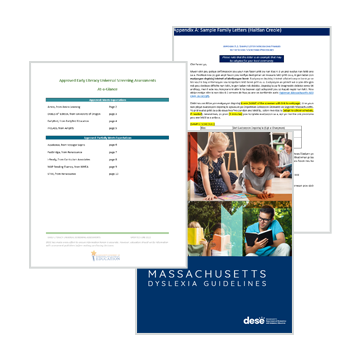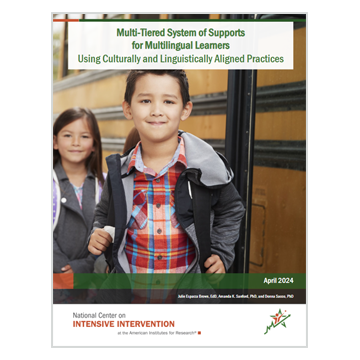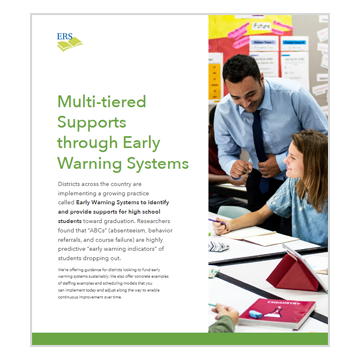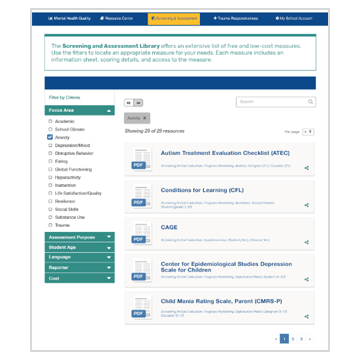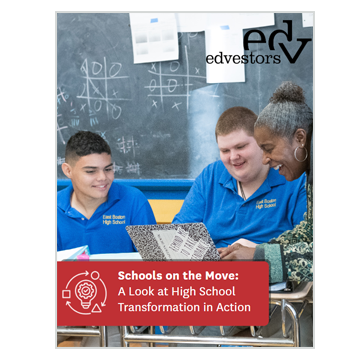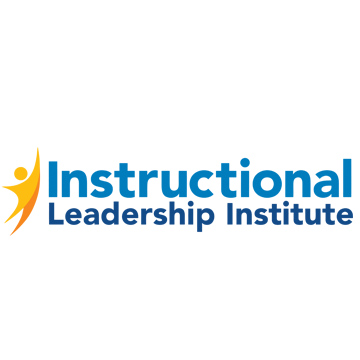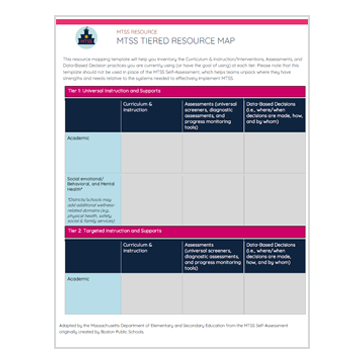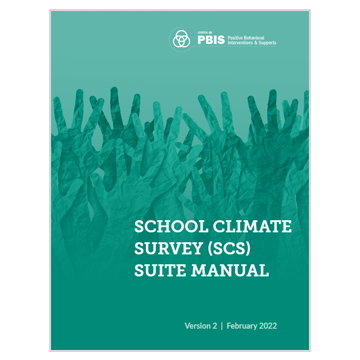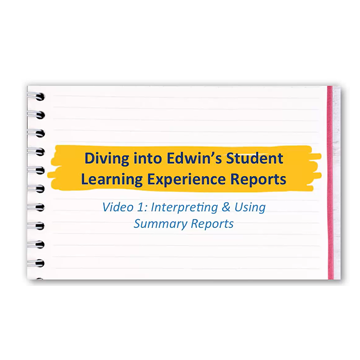Resource Profiles
New Resource Search
← Return to Find Resources | MTSS
Resource Results
DESE Early Literacy Screening Guidance and Resources
This collection of resources includes several tools to help districts implement early literacy screening — including a review of currently approved screeners that meet state regulation requirements that went into effect in 2023, sample family communication letters, and a guide for supporting students with dyslexia.
Multi-Tiered System of Supports for Multilingual Learners
The guide addresses a critical gap in traditional school models: the tendency to misidentify language acquisition as a learning disability and over-refer MLs for special education services. It advocates for a culturally and linguistically-aligned lens to ensure that multilingual learners receive support that respects their primary language and cultural background.
The Ultimate Guide to UDL
This great round up of resources compiled by Katie Novak, a UDL leader in Massachusetts and beyond, covers a huge amount of territory: UDL basics and video explainers, common misconceptions, a UDL implementation rubric, a UDL assessment flowchart, what to look for to evaluate UDL implementation in classrooms, recommended books and much more.
Multi-Tiered Supports through Early Warning Systems (High School)
This resource focuses on implementing early warning systems, with a focus on the “ABCs” (absenteeism, behavior referrals, and course failure) which are highly predictive indicators for dropping out. Includes staffing, scheduling, and other resource shift examples, and highlights “do now” and “build toward” practices.
Transforming High School by Redesigning the Ninth Grade Experience
Read about schools and one district that rethought the Grade 9 experience in order to create the best possible foundation for high school success. Each case study identifies the “change package” that led to improved student outcomes, resource and scheduling shifts, and structures that supported educator collaboration.
PK-12 Mental Health Screening & Tiered Support Planning Tools
These tools provide an orientation to different mental health and social emotional/behavioral assessment screeners schools can use to identify students who may need targeted or intensive support. The SHAPE library is free to use but requires users to register for an account.
Schools on the Move: A Look at High School Transformation in Action
Learn about high school improvement efforts at three Boston schools — East Boston High, 2023 School on the Move Winner, and two finalists, Boston Green Academy and Fenway High.
Massachusetts Education-to-Career Research and Data Hub (E2C)
The E2C Hub brings together data from across three agencies to help educators, students and families, policy makers, researchers, and others understand how Massachusetts children progress from early care, through K-12 education, and into higher education and the workforce.
DESE Instructional Leadership Institute 2025 Session Materials
Find workshop materials from DESE’s 2025 Instructional Leadership Institute. Session topics included instructional vision and planning, designing for school belonging, scheduling, student support structures, multilingual learners, budgeting, and more.
Safe and Supportive Schools Self-Reflection Tool
The revised Safe and Supportive Schools Implementation Guide & Self-Reflection Tool provides an inquiry-based year-long or multi-year process to document current practices that support students` behavioral health ranging from the whole school community to individual students that require more intensive supports.
MTSS Tiered Resource Map
This resource mapping template will help you inventory the Curriculum & Instruction/ Interventions, Assessments, and Data-Based Decision practices you are currently using (or have the goal of using) at each tier.
The School Climate Survey Suite
The School Climate Survey Suite is a set of four multidimensional surveys to measure student, teacher, administrator, faculty, and family perceptions of school climate. The surveys are brief, reliable, and valid for assessing perceived school climate among students in Grades 3-12. The manual was updated 2022 (Version 2).
Student Learning Experience Report
This EDWIN report helps school and district leaders understand equity gaps in students’ learning experiences with effective educators; for example, the report shows how often students had assignments with different types of teachers over the past one to five years. This series of three videos and related guidance explain how the report works and how to interpret and use the data.
PEAR Holistic Student Assessment (HSA)
The PEAR Holistic Student Assessment (HSA) is a universal social-emotional assessment tool (student survey) that can help you better understand each student's unique strengths and needs.
← Return to Find Resources | MTSS
